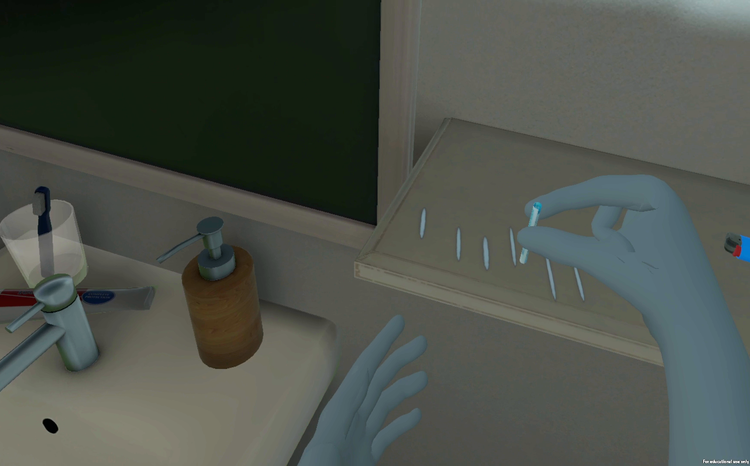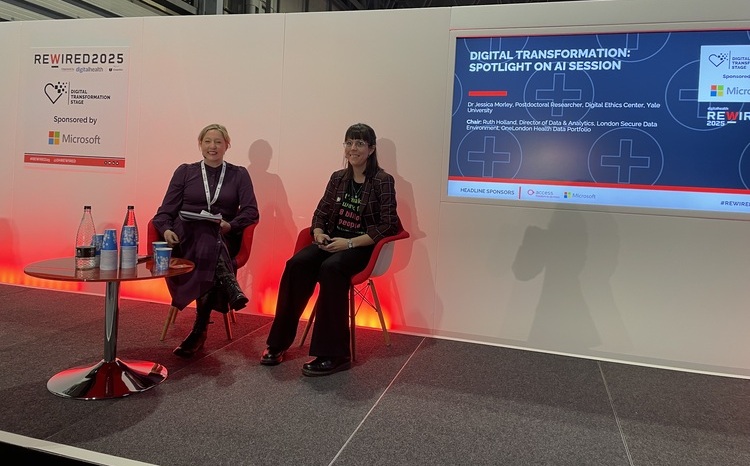Government funds research into VR and AI to tackle drug deaths
- 18 October 2024

- The government has awarded £12 million to projects across the UK that are researching technology to support people with addictions
- Researchers are using solutions such as wearable tech, virtual reality and AI to help prevent drug deaths and improve recovery outcomes
- 11 projects have been awarded funding across eight organisations in the UK
The government has awarded £12 million to projects across the UK that are researching technologies such as AI, wearable tech and virtual reality (VR), to support people with addictions.
A total of 11 projects across eight organisations have been awarded funding from the Addiction Healthcare Goals programme, which is run by the Office for Life Sciences.
One of the chosen projects, PneumoWave ALERT, pairs a chest-worn sensor that monitors breathing to a mobile device that sends out an immediate alert to nearby antidote carriers and emergency services if an overdose is detected, helping people get treatment as soon as possible.
Another study aims to help people overcome their triggers for cocaine addiction by using watch-like devices to measure which cues in their environment lead to a drug craving and then using VR to create realistic situations to repeatedly expose people to triggers in a safe environment.
Professor Anne Lingford-Hughes, chair of the Addiction Healthcare Goals, said: “New approaches to treat drug addiction and reduce drug related deaths, particularly from overdose, are urgently needed.
“The Addiction Healthcare Goals programme is pleased to fund promising innovations that have brought together partnerships between industry, academia and organisations involved in delivering treatment and care for those experiencing drug addictions.”
The projects were selected as part of the Scottish government’s Reducing Drug Deaths Challenge and the National Institute for Health and Care Research (NIHR) i4i Addiction: Innovation for Treatment and Recovery Awards.
Several of the projects are based in Scotland which has the highest rate of drug deaths in Europe.
These include research being run by the University of Edinburgh and NHS Fife which uses a wristband named “Saving Sam” to monitor vital signs such as blood oxygen levels, heart rate and body temperature and send an alert to a trusted contact if an overdose is suspected.
Professor Dame Anna Dominiczak, chief scientific advisor for health, Scottish Government, said: “Tackling drug-related deaths is a priority for the Scottish Government and NHS Scotland and we are committed to tackling these issues through targeted research, innovation and support.
“As part of phase two of the Reducing Drug Deaths Innovation Competition, funding has been awarded to develop seven prototypes aimed at reducing drug deaths.
“These innovative solutions include wearable sensors, digital monitoring and alert applications as well as novel antidote delivery systems.”
The technologies being researched could be rolled out to more sites across the UK if successful.
Professor Mike Lewis, scientific director for innovation at NIHR, said: “Innovation in managing addiction is needed to break the pattern of prison relapse and rebound and the wider impacts of addiction on society.
“Interventions, including AI, that allow management in the community need this research to validate their potential so we can implement them at scale.”
Andrew Gwynne, minister for public health and prevention, said: “Drug addiction devastates lives and rips apart families, and this government is committed to gripping this problem.
“We’re determined to harness the full potential of cutting-edge technology to save thousands of lives across the country.”





